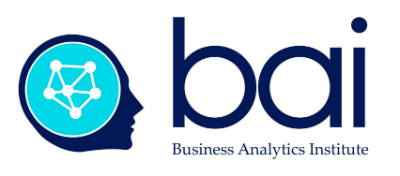What exactly is a “Great Decision”?
Our workshops on improving decision-making inevitably lead to questions on what better decision-making really means. In our minds, there is a clear distinction between good, better, and great decisions. Good decisions are possible in deterministic decision environments in which the right answer is in the data at hand. Unfortunately, most business decisions are taken in stochastic environments in which the right decision cannot be deduced from the available data – but better decisions are possible in reducing the causes of uncertainly. Finally, great decisions are those in which the context, challenges and solutions allow us to re-examine the nature of the decision-making process itself.
Do you have an example of a great decision? Here’s one of my favorites:
“I remember my father talking passionately about the foolishness of a blockade a few days after that morning of October 15, 1962. He couldn’t understand why President Kennedy was giving the Soviets another chance – dad was adamant that they had already done enough damage two years earlier in foiling Castro’s overthrow by the Brigade 2506. I have heard this story of the Cuban Missile Crisis told many ways since, engraving progressively an image in my mind of one of the greatest decisions of all time.
On that fatal day in late fall, John Kennedy had received confirmation that the Soviets were installing nuclear-armed missiles In Cuba that would put eighty million Americans in danger of instant annihilation. He gathered once again his closest advisors to discuss an appropriate response. He would late write that he had been unable to read Nikita Khrushchev’s thoughts and had no clue as to how the Soviets would react. The hard data at his disposal was imperfect at best – supplied by a military industrial complex in which he had little faith. His experts, many of the same who had so poorly counseled him on the covert action in Cuba, were almost unanimous in their advice of a pre-emptive strike that would begin a Third World War.
Against the advice of his National Security Council (ExComm), he decided to set up a blockade rather than go to war – a response that led the Soviets to abandon their military projects in Cuba a few weeks later. This decision was taken in a climate of uncertainty and ambiguity in which there was no one right answer. The decision broke with a commonly accepted practice of consensual “groupthink” and instituted a decision-making process designed to probe the decision environment, solicit contradictory points of view, stimulate discussion and debate, and weigh the options that provide the best fit in a given situation.1 The decision not only avoided world war at that time, but changed the assumptions of decision science ever since.”
Improving managerial decision making is the objective of the Business Analytics Institute. In our Master Classes in Europe, as well as our Summer School in Bayonne, we explore the skills and methods that can improve decision-making in your organization. The Institute focuses on five applications of data science for managers: working in the digital age, managerial decision making, machine learning, community management, and visual communications. Developing good, better, and great decision making can make a difference in your future work and career.
---
- See Hansen, M., How John F. Kennedy Changed Decision Making for Us All, Harvard Business Review, Nov 22, 2013


